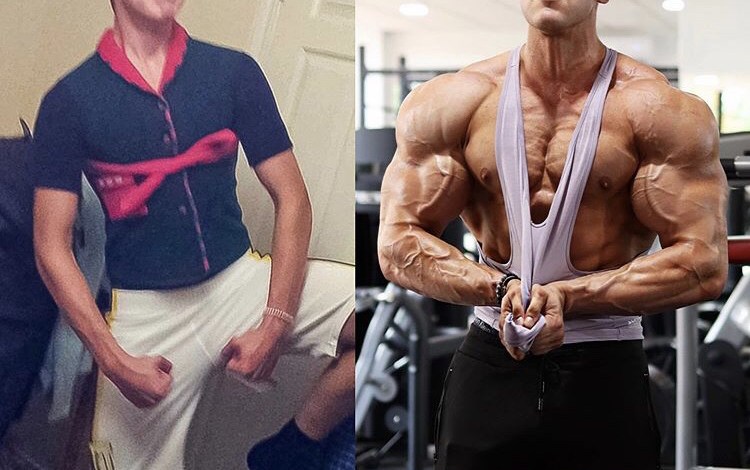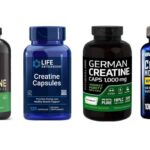Do You Lose Size When You Stop Taking Creatine?

Creatine is a common ingredient in sports drinks and muscle-building supplements. Creatine is formed of three amino acids: L-arginine, glycine, and L-methionine. It makes up about 1 percent of the total volume of human blood.
Around 95 percent of creatine in the human body is stored in skeletal muscle, and 5 percent is in the brain. According to Mayo Clinic, between 1.5 and 2 percent of the body’s creatine store is converted for use each day by the liver, the kidneys, and the pancreas. It is transported through the blood and used by parts of the body that have high energy demands, such as skeletal muscle and the brain.
Different forms of creatine are used in supplements, including creatine monohydrate and creatine nitrate. No creatine supplement has yet been approved for use by the United States (U.S.) Food and Drug Administration (FDA). There are dangers associated with the use of unrestricted supplements.
A person needs between 1 and 3 grams (g) of creatine a day. Around half of this comes from the diet, and the rest is synthesized by the body. Food sources include red meat and fish. One pound of raw beef or salmon provides 1 to 2 grams (g) of creatine.
Creatine can supply energy to parts of the body where it is needed. Athletes use supplements to increase energy production, improve athletic performance, and allow them to train harder.
According to the International Society of Sports Nutrition (ISSN), larger athletes who train intensely “may need to consume between 5 and 10 g of creatine a day” to maintain their stores. People who cannot synthesize creatine because of a health condition may need to take 10 to 30 g a day to avoid health problems.
How Creatine works
Creatine can improve health and athletic performance in several ways. In high-intensity exercise, its primary role is to increase the phosphocreatine stores in your muscles. The additional stores can then be used to produce more ATP, which is the key energy source for heavy lifting and high-intensity exercise.
Creatine supplements also increase phosphocreatine stores in your brain, which may improve brain health and prevent neurological disease.
Do you lose size when you stop taking creatine?
When you stop taking creatine, you may gradually lose size as creatine stores in the body are depleted especially in muscle and the brain. Stopping creatine often leads to general weakness, fatigue, and lethargy lasting for 1 or 2 weeks. That over-the-top energy that you had before will be diminished.
This does not mean that you will completely shrivel down in size and strength and no longer hold the power you once had. What you need to do is train harder and with more purpose than before. The only way you will actually lose power and size from discontinuing creatine is if you start putting in less effort. If your motivation falls and therefore effort falls, you will lose size and strength.
Remember, creatine is not a drug. You do not have huge withdrawal-like effects. It’s a supplement that aids you.
If you decided to stop taking creatine due to its effect on your kidney, you should note that symptoms may take some time to disappear, impairment is generally reversible, provided the nephrotoxicity is recognized early and the offending supplement is discontinued.
Studies suggest that creatine might worsen kidney dysfunction in people with kidney disorders, creatine doesn’t appear to affect kidney function in healthy people.
What are the side effects of taking creatine supplements?
Creatine is a relatively safe supplement with few side effects reported. However, you should keep in mind that:
If you take creatine supplements, you may gain weight because of water retention in your body’s muscles. It will take seven to 28 days to see energy effects depending on how much creatine you already have in your body.
It may be dangerous to take creatine supplements when you are actually dehydrated or trying to lose weight.
The International Society of Sports Nutrition recently found no scientific evidence that short- or long-term use of creatine monohydrate causes any harmful effects on otherwise healthy individuals. Nevertheless, always contact your healthcare provider before taking creatine or any supplements.
Is it safe to take creatine supplements?
Although creatine is present naturally in your body, taking additional supplements appears to be generally safe. However, keep in mind that the U.S. Food and Drug Administration does not regulate nutritional supplements. Creatine products that are sold in stores may vary in the quantity of creatine supplement, quality, and additional ingredients. Safety and purity standards are also not controlled.
Check with your healthcare provider about the use of creatine supplements in children younger than 18 years. Not enough information is known about the safety of creatine supplements in pregnant or nursing women. If you have kidney disease, speak with your healthcare provider before using it. Taking the supplement may make your kidney disease worse. Many medications can harm your kidneys. Always check with your provider if you take any medications – the combination of creatine supplements could damage your kidneys.
Doctors do not know the effects of creatine supplements on important organ systems, such as the heart, brain, kidneys, liver, and reproductive organs, or the effects of combining creatine supplements with over-the-counter medications, prescription drugs, vitamins, and energy drinks. You may find useful information on Does Dry Scooping Pre Workout Cause Heart Attack?





